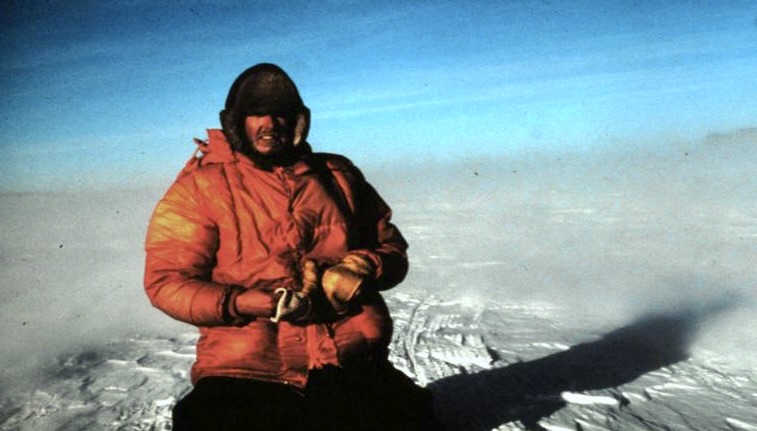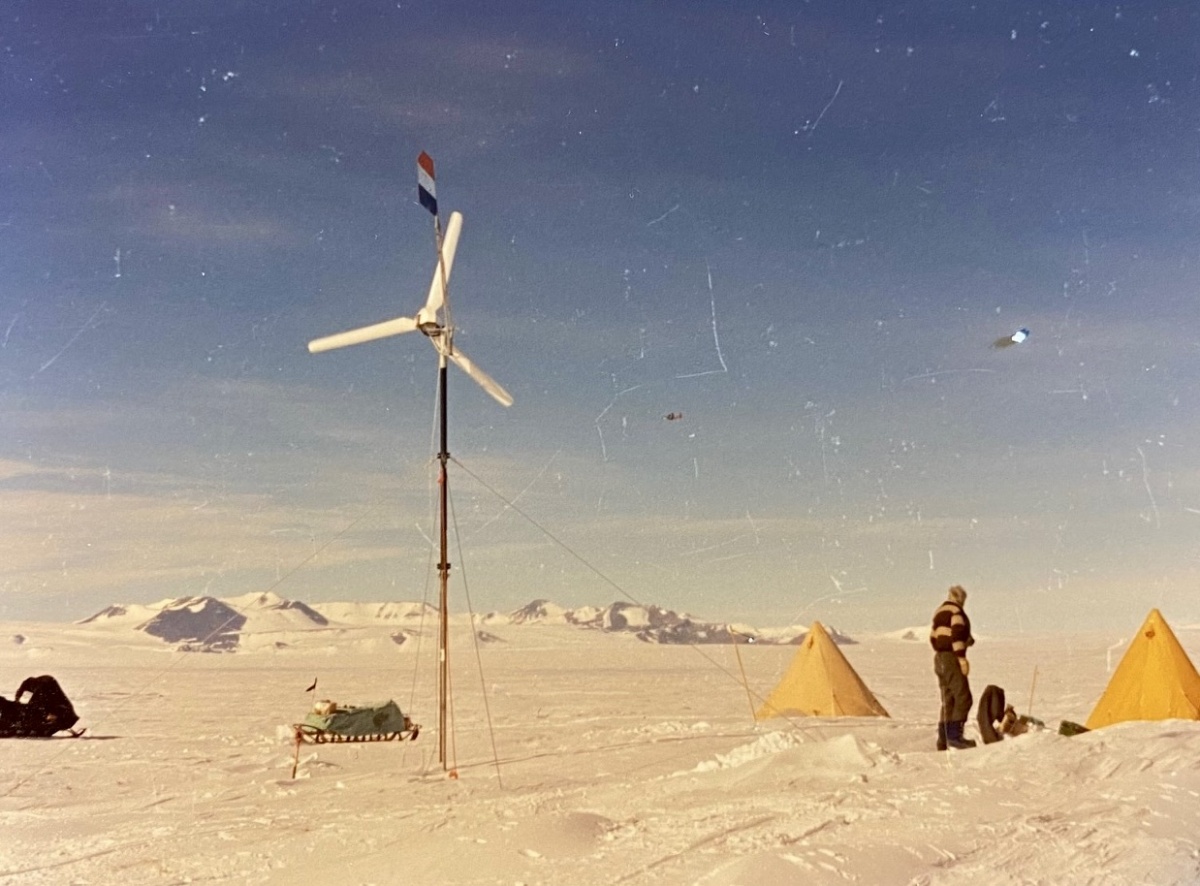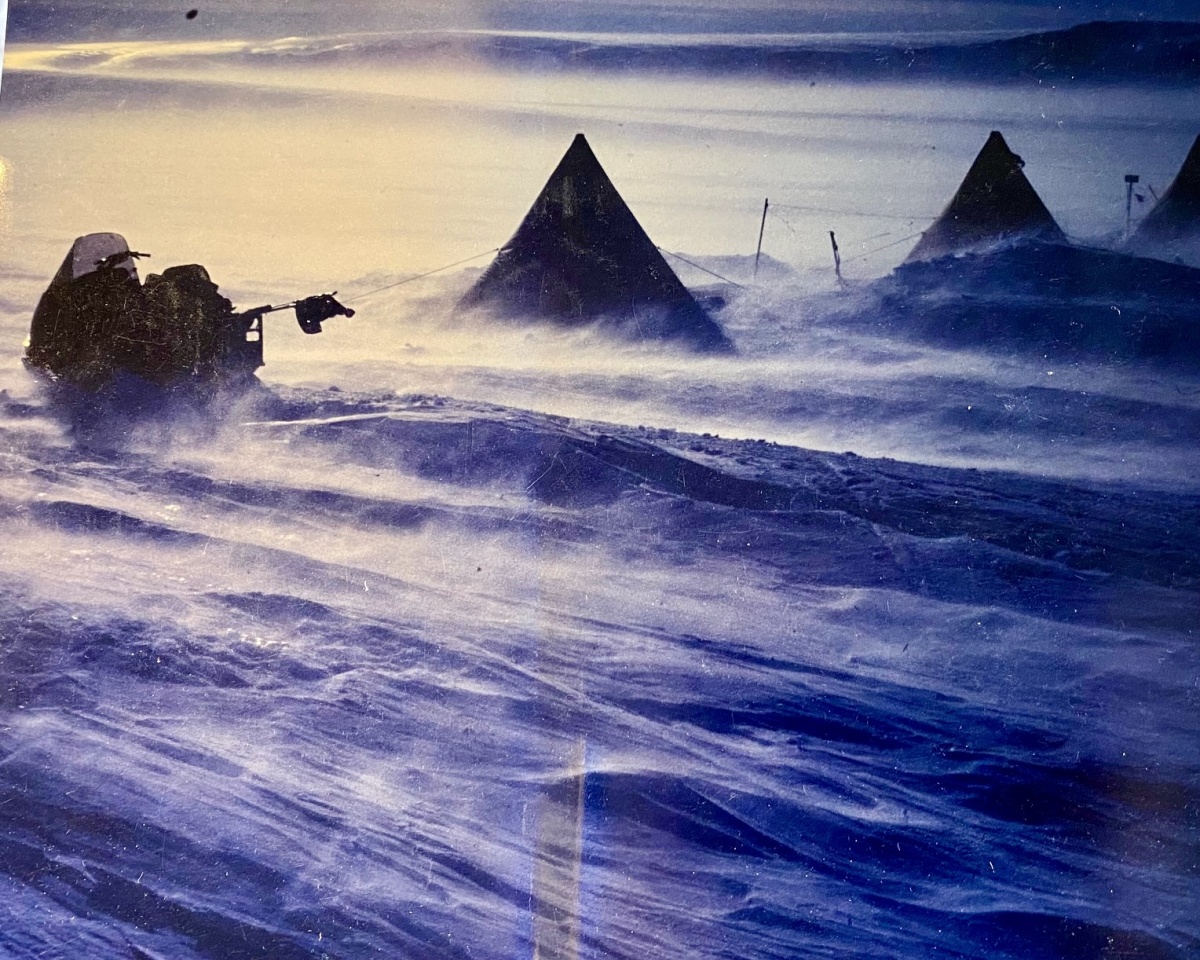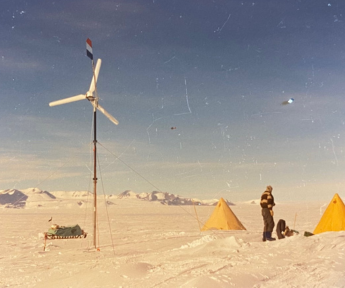During his 1986-87 meteorite expedition, explorer Austin Mardon came to understand Antarctica not just as a remote, frozen expanse - but as a vital component of Earth’s climate system. Home to around 90% of the world’s freshwater, the continent’s massive ice sheets influence weather, ocean currents, and global temperatures.
“Antarctica is a thermometer to climate change,” Mardon reflects. “It’s important to preserve Antarctica for a lot of reasons, and climate change is at the top of that list.”
Mardon’s team recovered over 700 meteorites, earning him the U.S. Antarctic Service Medal. But the cost was personal. “That interior is beyond dangerous,” he says. “It’s like going to the moon.” The experience was, in his words, “mentally and physically damaging.” Yet it left him with a profound appreciation for the continent’s critical significance - and its fragility.

The Climate Engine at the Bottom of the World
Antarctica's role in global climate regulation is indispensable. Its reflective ice cover (known as the albedo effect) helps stabilize global temperatures. The surrounding waters drive the global ocean conveyor belt, circulating heat and nutrients. The mighty Antarctic Circumpolar Current (ACC) plays a crucial role in regulating the climate through heat and carbon exchange.
But these systems are increasingly under threat. As the planet warms, melting ice reduces reflectivity, creating a feedback loop that accelerates warming. Freshening of ocean water slows global circulation, disrupting climate patterns. A weakening ACC diminishes the ocean's ability to absorb carbon dioxide, worsening the greenhouse effect. The Southern Ocean, while a vital carbon sink, is becoming more acidic, threatening marine life and the integrity of the food chain.

A Frontier Under Pressure
Despite its remoteness, Antarctica faces severe threats, primarily from human activities beyond its shores. Climate change is the most immediate danger, causing rapid warming (especially on the Peninsula), ice shelf collapse, glacier retreat, and sea ice decline. This melting directly contributes to global sea level rise, threatening coastal communities worldwide. Pollution from distant sources, research activities, and tourism also poses risks.
Crucially, Antarctica is protected from mineral resource exploitation by international agreement. However, the potential pressure to exploit its resources represents a catastrophic future threat. Such activities would inevitably cause irreversible damage to its unique and fragile ecosystems, far exceeding the impacts of current tourism and research. Pursuing resource extraction in Antarctica exemplifies the dangerous global pattern of seeking infinite resources on a finite planet, a pursuit that comes at the direct expense of environmental stability, global climate, and ultimately, human lives. The continent's role is too critical to sacrifice for short-term economic gain.
The environmental changes already underway severely impact Antarctica's unique wildlife. Penguin populations decline with sea ice loss and reduced krill. Krill numbers themselves have plummeted in some areas, affecting the entire food web. Warming waters disrupt migrations and expanding ice-free areas risk invasion by non-native species. Resource extraction activities would compound these stresses exponentially, potentially leading to ecosystem collapse.
Recognizing Antarctica's global importance, the Antarctic Treaty System (1959) designates it a zone of peace and science. The Protocol on Environmental Protection (1991) declares it a natural reserve and explicitly prohibits mining and mineral resource activities. This ban is paramount. The Commission for the Conservation of Antarctic Marine Living Resources (CCAMLR) manages fisheries sustainably and establishes vital Marine Protected Areas (MPAs). These frameworks are essential bulwarks against exploitation.

Final Thoughts on the Frozen Continent
Antarctica's role in planetary stability cannot be overstated. While climate change is the immediate crisis, the potential for future resource extraction looms as an existential threat that must be permanently averted. Upholding and strengthening the Antarctic Treaty System, particularly the ban on resource exploitation, is non-negotiable. Continued international cooperation, robust conservation, and urgent global climate action are essential. Antarctica must remain dedicated to peace and science, a symbol of global cooperation, not another casualty of an unsustainable pursuit of resources that jeopardizes the very systems supporting human life.

This article is part of RSC Voices, where we highlight RSC members, their informed perspectives, and impactful work.
About the Authors
 Dr. Austin Albert Mardon, CM, KCSS, FRSC, FRCGS, is a prolific Canadian author, researcher, and academic with over 360 papers and 200 books spanning geography, astronomy, and medicine. A noted Antarctic explorer involved in meteorite recovery, he is also a prominent mental health advocate, drawing on personal experience. His advocacy has earned him the Order of Canada and the CMA Medal of Honour. Dr. Mardon holds adjunct professorships at the University of Alberta (Psychiatry and John Dossetor Health Ethics Centre) and the University of Lethbridge (Neurosciences) and received an honorary Doctor of the University degree from MacEwan University in Spring 2024.
Dr. Austin Albert Mardon, CM, KCSS, FRSC, FRCGS, is a prolific Canadian author, researcher, and academic with over 360 papers and 200 books spanning geography, astronomy, and medicine. A noted Antarctic explorer involved in meteorite recovery, he is also a prominent mental health advocate, drawing on personal experience. His advocacy has earned him the Order of Canada and the CMA Medal of Honour. Dr. Mardon holds adjunct professorships at the University of Alberta (Psychiatry and John Dossetor Health Ethics Centre) and the University of Lethbridge (Neurosciences) and received an honorary Doctor of the University degree from MacEwan University in Spring 2024.
 Jonathan Harline is a nonprofit leader with a background in communications and community development. Jonathan holds a Public Relations Diploma from Grant MacEwan University and a Bachelor of Arts in English and Political Science from the same institution. Jonathan is currently pursuing a Master's in Philanthropy and Nonprofit Leadership at Carleton University. His research interests include strategic communications, stakeholder engagement, and the role of decolonization in community building.
Jonathan Harline is a nonprofit leader with a background in communications and community development. Jonathan holds a Public Relations Diploma from Grant MacEwan University and a Bachelor of Arts in English and Political Science from the same institution. Jonathan is currently pursuing a Master's in Philanthropy and Nonprofit Leadership at Carleton University. His research interests include strategic communications, stakeholder engagement, and the role of decolonization in community building.
Works Cited
- Antarctica and its role in climate change, accessed April 29, 2025
- Why Antarctica matters - British Antarctic Survey, accessed April 29, 2025
- Antarctica and the climate | NIWA, accessed April 29, 2025
- The Antarctic Treaty System | Ministry of Foreign Affairs, Republic of Korea, accessed April 29, 2025
- Antarctica: a massive frozen landmass - WWF-UK, accessed April 29, 2025
- NASA honouring U of L alumnus - The Lethbridge Herald, accessed April 29, 2025
- Austin Mardon - Wikipedia, accessed April 29, 2025
- NSS Member Dr. Austin Mardon Honored with NASA Medal - National Space Society, accessed April 29, 2025
- Climate Science in Antarctica - Antarctic and Southern Ocean Coalition, accessed April 29, 2025
- Antarctica and climate change - British Antarctic Survey - Publication, accessed April 29, 2025
- How disappearing Antarctic ice fuels a climate change reaction - Ohio University, accessed April 29, 2025
- Record Levels of Antarctic Sea Ice Melt and the Global Consequences - Arctic Ice Project, accessed April 29, 2025
- Antarctic: Ocean Circulation - Dive & Discover, accessed April 29, 2025
- The Global Ocean Pump - Antarctic and Southern Ocean Coalition, accessed April 29, 2025
- Deep ocean waters near Antarctica are changing and disrupting global ocean circulation, accessed April 29, 2025
- Key Ocean Current Contains a Warning on Climate | Lamont-Doherty Earth Observatory, accessed April 29, 2025
- Melting Antarctic ice could weaken world's strongest ocean current, study warns - Mongabay, accessed April 29, 2025
- Climate Crisis in Antarctica - Antarctic and Southern Ocean Coalition, accessed April 29, 2025
- Protecting Antarctica - Antarctic and Southern Ocean Coalition, accessed April 29, 2025
- Impacts of climate change - Discovering Antarctica, accessed April 29, 2025
- Antarctic Ice and Rising Sea Levels, accessed April 29, 2025
- Who Is Protecting Antarctica's Environment? - the United Nations, accessed April 29, 2025
- Antarctic Conservation Act and Permits - Office of Polar Programs (GEO/OPP) - NSF, accessed April 29, 2025
- Studying and Conserving Antarctic Ecosystems - NOAA Fisheries, accessed April 29, 2025
- The amazing wildlife of Antarctica - YouTube, accessed April 29, 2025
- scar.org, accessed April 29, 2025


